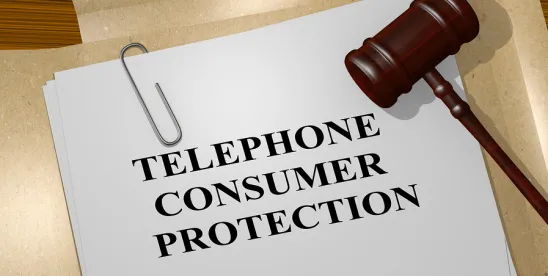As demonstrated by TCPAworld.com’s rolling ATDS review, the state of the TCPA landscape remains far from clear. Must an automatic telephone dialing system (ATDS) use a random or sequential number generator to dial numbers in order to qualify under the TCPA as the statute requires? Is any dialer that calls automatically from a list an ATDS as Marks holds? Are the FCC’s former predictive dialer rulings still viable or have those been set aside by ACA Int’l?
Truth be told, we don’t know. We follow the TCPA with a microscope, a telescope and a horoscope, but there’s still no making sense of the patchwork judicial decisions being handed down seemingly daily.
Against this backdrop of uncertainty, the FCC continues its critical work assessing the scope and architecture of the TCPA as part of its still-pending Public Notice proceeding. The FCC has very clearly told TCPAworld that it will provide a (probably) final take on the ATDS definition when next it rules – probably very soon – and answer at least the following questions:
- How much user effort should be required to enable the device to function as an ATDS?
- Does equipment have the capacity if it requires the simple flipping of a switch?
- If the addition of software can give it the requisite functionality?
- If it requires essentially a top-to-bottom reconstruction of the equipment?
- In answering that question, what kinds (and how broad a swath) of telephone equipment might then be deemed to qualify as an automatic telephone dialing system?
- How “automatic” must dialing be for equipment to qualify as an ATDS?
- Does the word “automatic” “envision non-manual dialing of telephone numbers”?
- Must such a system dial numbers without human intervention?
- Must it dial thousands of numbers in a short period of time?
- If so, what constitutes a short period of time for these purposes?
- If a caller does not use equipment as an ATDS, does the statutory prohibition apply?
That’s a long list of very specific questions the FCC has posed and is set to answer. Without question (ha), therefore, the FCC is thinking long and hard about how to approach the definition of ATDS and is set to give clear and (again probably) final guidance on the issue. Yet the district courts just keep issuing conflicting rulings on these exact questions.
If only there were a doctrine designed to require district courts to await final agency determinations to assure uniformity and even application of the law across the country. That sure would be nice. Too bad no such doctrine exists.
Wait, a second. Yes one does.
Courts have repeatedly recognized the importance of deferring to the legislative agencies trusted by Congress to interpret a vague statute. The resulting doctrine – known as “primary jurisdiction” – is universally applied and designed to ensure that a disastrous crush of conflicting opinions never arises under an agency’s watch. The Ninth Circuit, for instance, holds that a district court must stay a case pending an agency proceeding if: “(1) the need to resolve an issue that has been placed by Congress within the jurisdiction of an administrative body having regulatory authority (2) pursuant to a statute that subjects an industry or activity to a comprehensive regulatory authority that (3) requires expertise or uniformity in administration.” Syntek, 307 F.3d at 781. If these factors are met, the court is required to step aside and hold the issue to be determined by the agency interpreting the act.
In the context of the FCC’s proceeding, it is clear that the Syntek factors favor a stay of proceedings in litigation requiring an interpretation of the phrase “ATDS.” I mean, just look at the laundry list of questions the FCC is currently considering on that topic. To the extent the TCPA ATDS formulation is vague – as the Marks court found – the FCC is the agency trusted by Congress to interpret it in the first instance. The TCPA obviously casts a comprehensive regulatory scheme over callers, which the FCC expertly administers (hopefully). And certainly, uniformity is required here. So, the primary jurisdiction doctrine seems to require courts to pump the brakes on allowing TCPA cases to proceed where the ATDS determination is at issue.
That brings me to the recent case of Secure v. Ultimate Fitness Group, Case Number: 18-20483-CIV-MORENO, 2019 U.S. Dist. LEXIS 45194 (S.D. Fl. March 14, 2019). There the court held that a TCPA case requiring the court to address the issue of ATDS functionalities had to be stayed pending the FCC’s public notice proceeding. As the court held: “One of the issues presented in this case is whether the Defendant did in fact use an ATDS when sending text messages to the Plaintiff. Because, as Defendant notes, the FCC is currently seeking public comment and reconsidering the definition of an ATDS, it is ADJUDGED that Defendant’s motion to stay is GRANTED.”
Simple as that folks.
Stays like the one issued in Secure help to (ahem) secure uniformity and consistency and predictability in TCPA cases. Given the grave First Amendment concerns raised by regulations on speech – which the TCPA certainly is – courts should err on the side of caution and uniformity to avoid chilling lawful speech with a vague and shifting enactment. Hopefully, more courts will follow the good example set in Secure. We will keep an eye on these developments.




 />i
/>i
